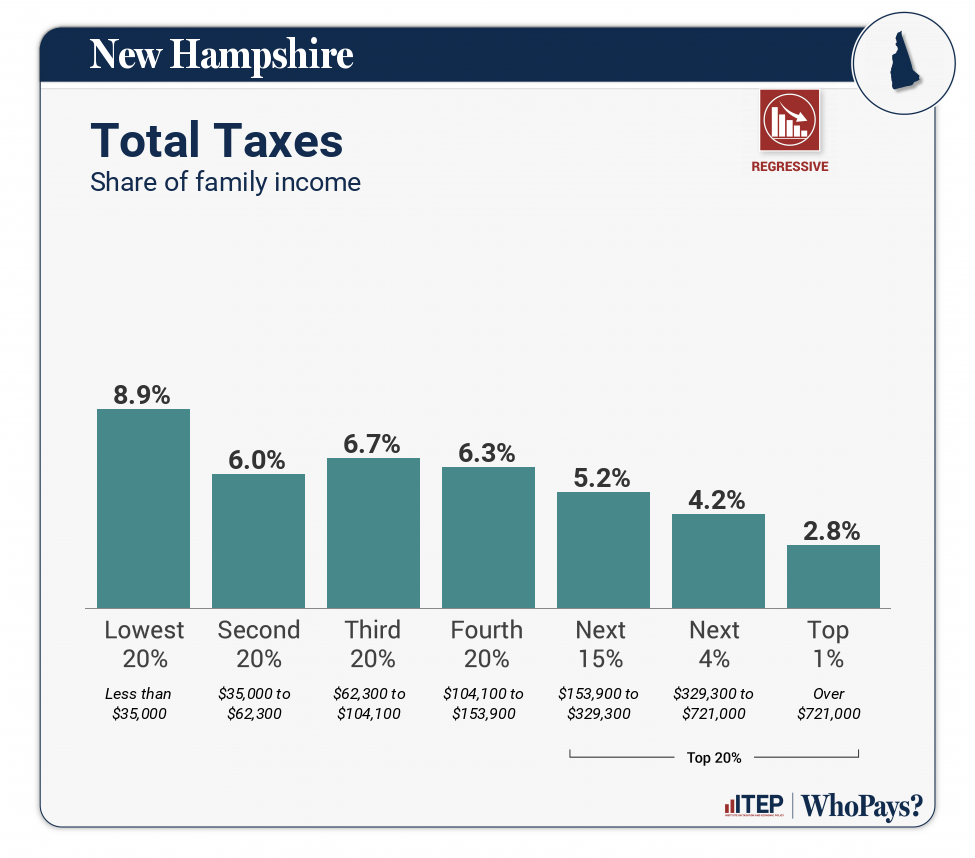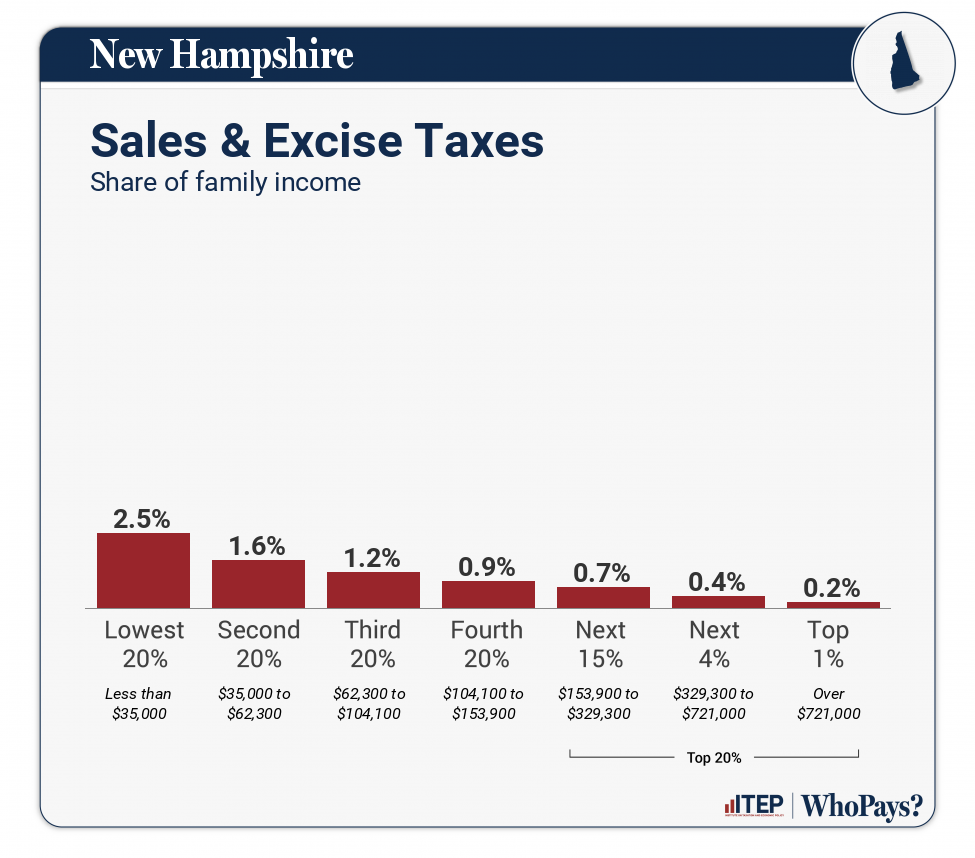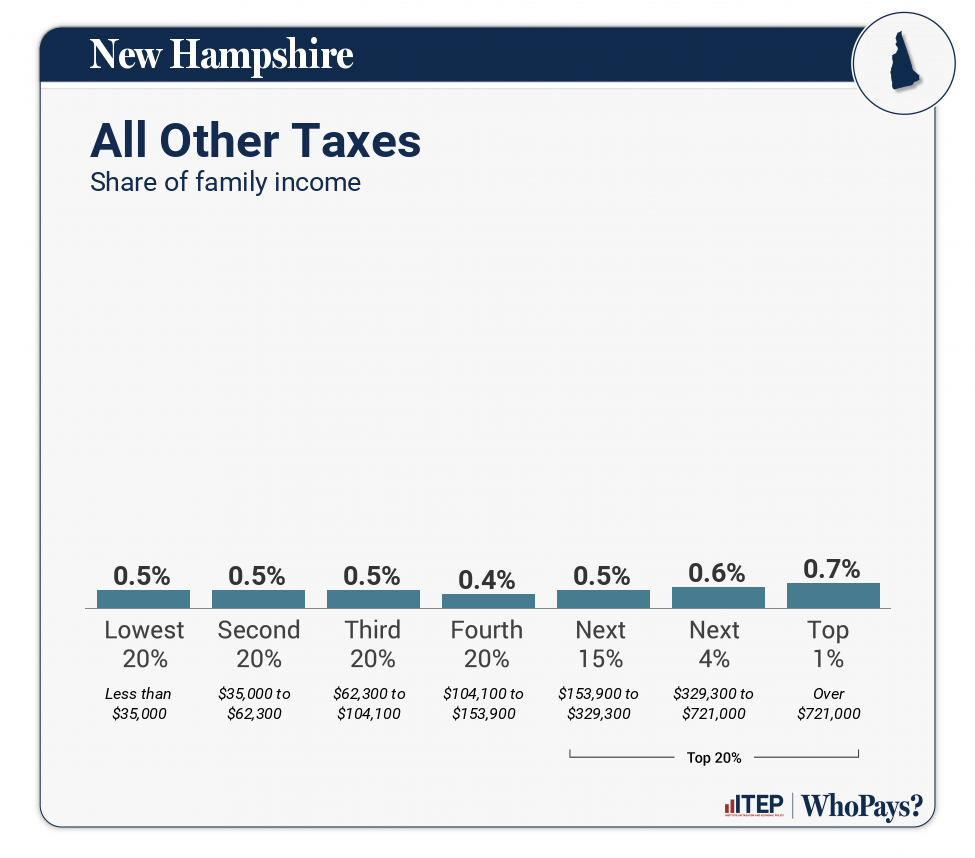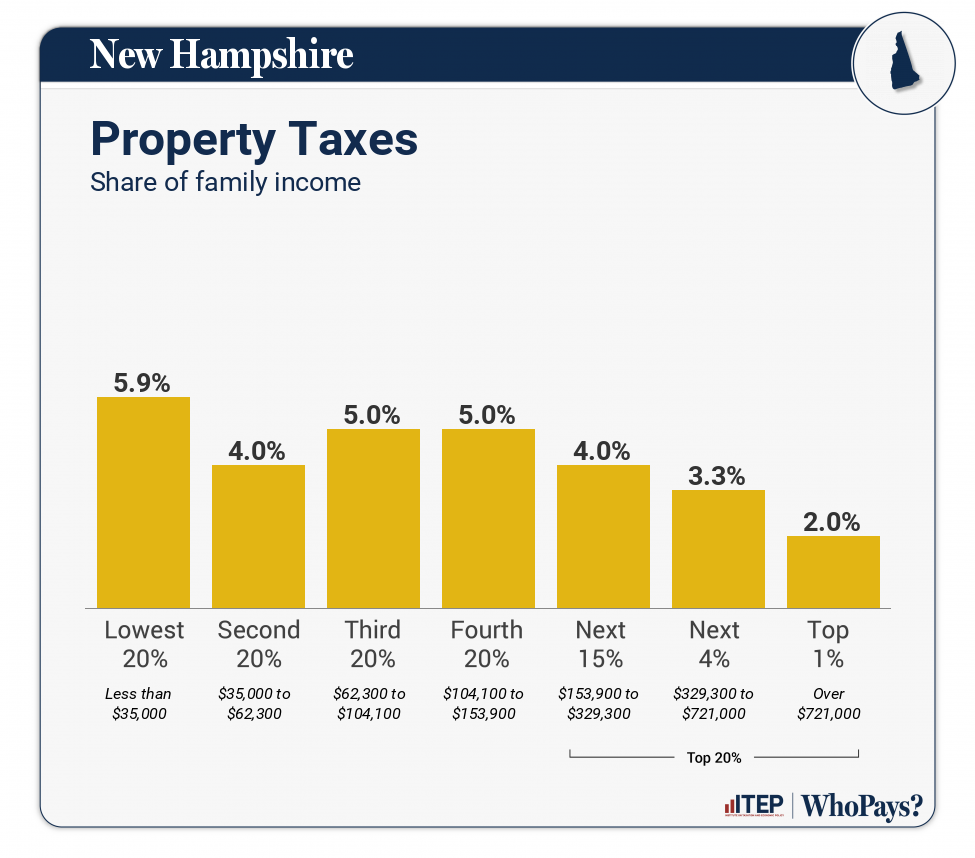
New Hampshire
Download PDF
State and local tax shares of family income
| Top 20% | |||||||
| Income Group | Lowest 20% | Second 20% | Middle 20% | Fourth 20% | Next 15% | Next 4% | Top 1% |
| Income Range | Less than $35,000 | $35,000 to $62,300 | $62,300 to $104,100 | $104,100 to $153,900 | $153,900 to $329,300 | $329,300 to $721,000 | Over $721,000 |
| Average Income in Group | $19,300 | $46,700 | $81,700 | $129,300 | $217,600 | $463,900 | $2,125,000 |
| Sales & Excise Taxes | 2.5% | 1.6% | 1.2% | 0.9% | 0.7% | 0.4% | 0.2% |
| General Sales–Individuals | 0% | 0% | 0% | 0% | 0% | 0% | 0% |
| Other Sales & Excise–Ind | 2.2% | 1.3% | 0.9% | 0.7% | 0.5% | 0.3% | 0.1% |
| Sales & Excise–Business | 0.3% | 0.3% | 0.3% | 0.2% | 0.2% | 0.1% | 0.1% |
| Property Taxes | 5.9% | 4% | 5% | 5% | 4% | 3.3% | 2% |
| Home, Rent, Car–Individuals | 5.2% | 3.4% | 4.4% | 4.5% | 3.5% | 2.5% | 0.7% |
| Other Property Taxes | 0.7% | 0.6% | 0.6% | 0.5% | 0.6% | 0.7% | 1.2% |
| Income Taxes | 0.4% | 0.4% | 0.4% | 0.4% | 0.4% | 0.5% | 0.7% |
| Personal Income Taxes * | 0% | 0% | 0% | 0% | 0% | 0.1% | 0.2% |
| Corporate Income Taxes | 0.4% | 0.4% | 0.4% | 0.3% | 0.4% | 0.4% | 0.4% |
| Other Taxes | 0.1% | 0.1% | 0.1% | 0.1% | 0% | 0% | 0% |
| TOTAL TAXES | 8.9% | 6% | 6.7% | 6.3% | 5.2% | 4.2% | 2.8% |
| Individual figures may not sum to totals due to rounding. | |||||||
| * New Hampshire applies a limited tax on interest and dividends income in 2024. This tax is scheduled to be repealed in 2025. | |||||||
ITEP Tax Inequality Index
ITEP’s Tax Inequality Index measures the effects of each state’s tax system on income inequality. According to this measure, New Hampshire has the 18th most regressive state and local tax system in the country. Income disparities are larger in New Hampshire after state and local taxes are collected than before. (See Appendix B for state-by-state rankings and the report methodology for additional detail.)
Tax features driving the data in New Hampshire
|
Requires combined reporting for the corporate income tax but excludes profits booked overseas, including in tax haven countries
Limited income tax on interest and dividends (though it will be repealed in 2025)
No statewide sales tax
|
|
|
Minimal tax credits available for offsetting homeowner property taxes and no tax credits available for offsetting renter taxes
Real estate transfer tax does not include higher rate on high-value sales
Does not levy a tax on estates or inheritances
Comparatively high reliance on property taxes
No broad-based personal income tax
|









